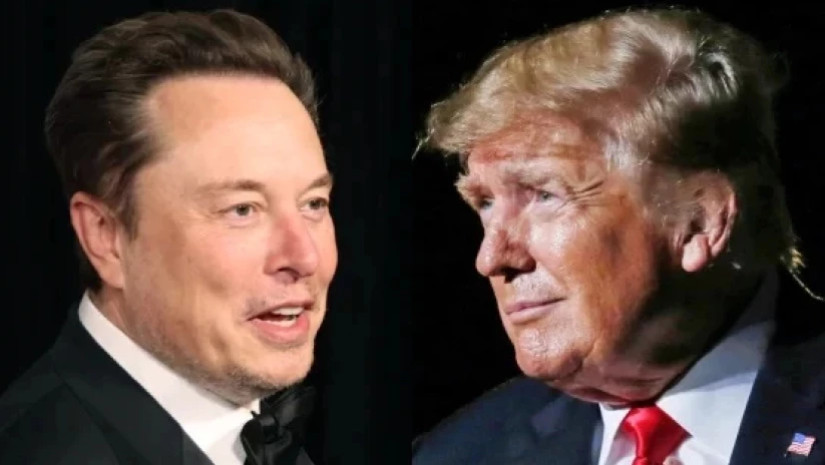The House of Representatives’ recent spending bill, which looked like a legislative Frankenstein’s monster, failed spectacularly, with Elon Musk playing a starring role in its demise. His comments on the bill have exposed a stark anti-poor, anti-worker stance that somehow managed to find bipartisan agreement in the “most divided Congress in history.” Let’s dive into this mess and see why Musk, Trump, and Democrats find themselves in a strange, uncomfortable alliance.
Elon Musk: Champion of Fiscal ‘Responsibility’ or Just Anti-Poor?
Elon Musk, the billionaire tech mogul who has managed to position himself as both a genius innovator and a clueless overlord, has been particularly vocal about the bill’s flaws. He called it the “biggest piece of pork” he’d ever seen. Sure, Elon, it’s pork—but perhaps not the kind your Tesla factory employees can afford.
By criticizing special-interest spending, Musk inadvertently aligned himself with Republicans and some Democrats who opposed the bill. But let’s be real: his disdain for “pork” conveniently ignores how federal funding could support infrastructure, scientific research, and disaster relief—areas that directly impact low-income Americans.
Trump’s Take: Playing Both Sides
Donald Trump, always the master of spectacle, took a less predictable stance. On the one hand, he publicly supported the bill, likely seeing it as a necessary evil to avoid a government shutdown. On the other hand, he’s happily cheered on Republican hardliners opposing it, framing himself as a fiscal conservative fighting for “the little guy.”
In truth, Trump’s mixed messages only added to the confusion, leaving many wondering whether his support for the bill was genuine or another strategic move to stay in the headlines.
Why the Bill Failed: A Breakdown of the Chaos
The spending bill, designed to prevent a government shutdown, was laden with provisions that sparked outrage across the political spectrum. Here’s a look at the most contentious elements:
- Debt Ceiling Suspension: Proposing a two-year suspension on the debt limit, the bill raised alarms over unchecked borrowing, leaving both fiscal conservatives and moderates uneasy.
- Increased National Debt: Critics slammed the lack of offsetting measures to curb spending, warning of long-term economic strain.
- Exclusion of Ethanol Provision: Corn growers and renewable fuel advocates were left fuming over the removal of the E15 ethanol provision.
- No Pay Raises for Lawmakers: Even lawmakers need to pay rent, but the omission of pay raises left Congress members grumbling.
- Insufficient Disaster Relief: $110 billion was allocated for disaster relief, but many felt it was a drop in the bucket compared to actual needs.
The Consequences: Welcome to 2025
The failure to pass this bill is a disaster waiting to unfold. If 2024 was a circus, 2025 is shaping up to be the apocalypse on wheels. Here’s what we’re facing:
- Government Shutdown: Millions of federal workers could face furloughs, while essential services like passport applications and disaster response grind to a halt.
- Economic Instability: Market volatility, reduced consumer confidence, and potential job losses will further strain an already fragile economy.
- Social Program Delays: Vulnerable populations relying on Social Security, Medicare, and SNAP benefits may see critical delays.
The Bigger Picture: Musk, Trump, and the Democrats
The irony of Musk agreeing with Democrats on opposing the bill isn’t lost on anyone. The same Democrats who advocate for social programs found themselves echoing Musk’s concerns about excessive spending—an unholy alliance, to say the least. Meanwhile, Republicans remain splintered, with 38 of them voting against their own party’s legislation.
Musk’s role in this fiasco has earned him the dubious title of the Unelected President. His tweets and public statements seem to hold more sway than actual elected officials, a troubling dynamic in a democracy.
A Grim Future or a Wake-Up Call?
As we stumble into 2025, it’s clear that the U.S. government needs a reset. The fiscal chaos, political dysfunction, and influence of unelected billionaires like Musk are eroding public trust. This latest debacle is a glaring reminder that without real leadership, the system risks collapsing under its own weight.
So, buckle up, America. If 2024 was a mess, 2025 is shaping up to be the dumpster fire we didn’t think possible. And as for Elon Musk? Maybe it’s time someone reminded him that running a country is a bit more complicated than running Twitter.
Final Thought: At the end of the day, the bill’s failure is a reflection of a government in gridlock. Whether it’s Musk’s outsized influence, Trump’s grandstanding, or Congress’s inability to compromise, one thing is certain: the American people deserve better.

